- Home›
- Healthy Living›
- 10 Chronic Complication That Can Occur Due To Uncontrolled Diabetes Are
10 Chronic Complication That Can Occur Due To Uncontrolled Diabetes Are
By: Priyanka Maheshwari Tue, 02 Feb 2021 3:13:23
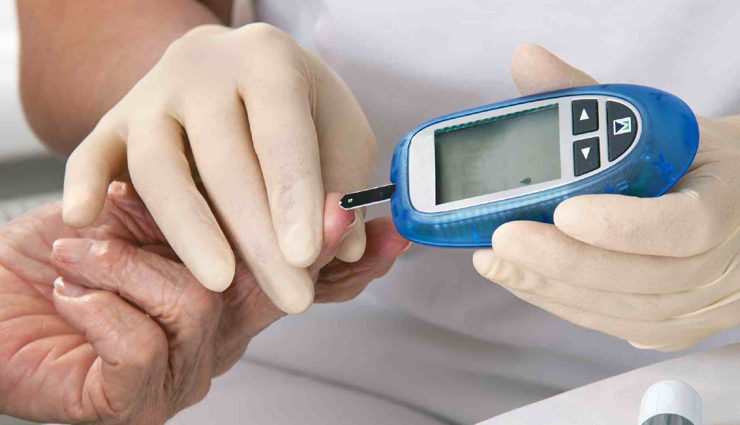
Almost every person at risk for developing diabetes. The International Diabetes Federation shown that every nine minutes someone dies by diabetes. Experts define diabetes as a disease or a chronic metabolic disorder with multiple aetiologies characterized by high blood sugar levels accompanied by impaired metabolism of lipids proteins and carbohydrates as a result of insufficiency of insulin function. Generally, people with diabetes recognize the excessive blood sugar. There are several types of diabetes, but this type 2 diabetes has most of sufferers in the world.
Type 2 diabetes (Non-Insulin-dependent diabetes) is a type of diabetes is more common. Many sufferers compared with type 1 diabetes, especially in adults, although it is possible also attacked teenagers. Type 2 diabetes is caused by cells that were subjected to insulin fail or unable to respond to insulin normally, or so-called insulin resistance.
Patients with type 2 diabetes may also arise disorders impaired insulin secretion and hepatic glucose production is excessive. But there was no destruction of Langerhans ‘ß’ cells in autoimmune diabetes as occurs in type 1 insulin function decline in patients with type 2 diabetes are only relative, not absolute.
Diabetes is generally characterized by symptoms of frequent of urination, frequent of thirst, ‘Polyphagia’ (frequent of hungry), and weight loss. Other symptoms that are usually found at the time of diagnosis include a history of blurred vision, itching, peripheral ‘Neuropathy’, recurrent vaginal infections, and fatigue. Nevertheless, many people didn’t experience any symptoms in the first few years and newly diagnosed on routine examination.
Patients with type 2 diabetes rarely come up in conditions very high blood glucose levels are associated with decreased consciousness and low blood pressure resulting in unconscious self.

# Nerve damage (neuropathy)
Long Term Effects of Type 2 Diabetes on the body could be source of nerve damage. The nervous system of our body is composed of the central nervous system, peripheral nervous system, the brain and spinal cord, muscle, skin, and other organs. That regulates smooth muscle in the heart and gastrointestinal tract.
This usually after a persistent high blood glucose, not well controlled, and lasts up to 10 years or more. If the blood glucose was reduced to normal, sometimes nerve repair can occur.
However, if the long-term blood glucose is not brought down to normal it will weaken and damage the walls of the capillaries that feed into the nerve, causing nerve damage called diabetic neuropathy (diabetic neuropathy).
Diabetic neuropathy can lead to nerves cannot send or deliver messages stimulation of nerve impulses, misdirected or delayed send.
Depending on the severity of nerve damage and nerve are affected. In patients with type 2 diabetes prevalence of neuropathy in clinical populations ranging from 7.6%-68.0% and in studies on populations ranging from 13.1%-45.0%.
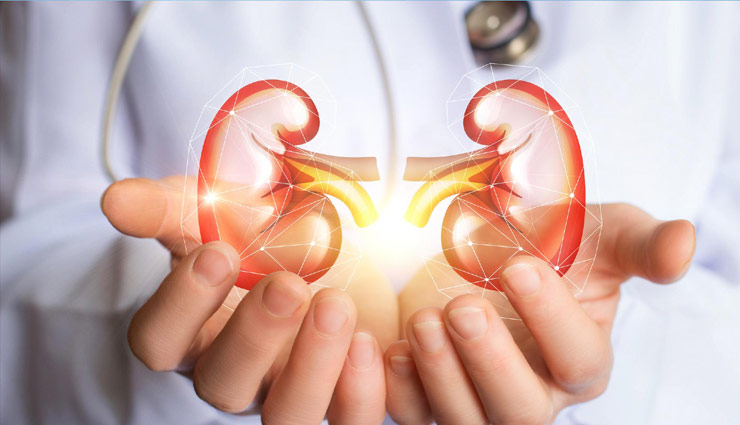
# Kidney damage (nephropathy)
Human kidney neuron consists of two million and millions of tiny blood vessels called capillaries. The capillary serves as a blood filter. Materials that are not useful for the body to be thrown into the urine or urinating.
The kidneys work 24 hours a day to cleanse the blood of toxins that enter into and are formed by the body. If there nephropathy or kidney damage, toxins cannot be removed, while proteins should be maintained kidneys leak out.
The longer a person has diabetes and increasingly exposed to high blood pressure, then the patient more susceptible to kidney damage. Renal impairment in patients with diabetes is also associated with neuropathy or nerve damage.
In patients with type 2 diabetes prevalence in clinical populations ranging from 2.5%-57.0% and in studies on populations ranging from 18.9%-42.1%, while the prevalence of overt nephropathy in clinical populations ranging from 5.4%-20.0% and in research on populations ranging from 9.2%-32.9%.

# Eye damage (retinopathy)
Diabetes can damage the eyes, namely: 1) retinopathy, 2) cataract, the lens is usually clear, translucent and transparent becomes turbid preventing the entry of light and is exacerbated by the presence of high blood glucose; and 3) glaucoma, increased pressure in the eyeball that damage the optic nerve.
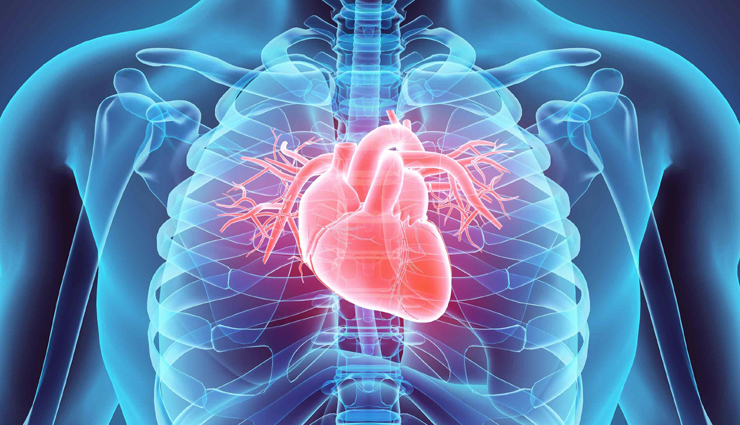
# Coronary heart disease
Diabetes damage the wall of blood vessels that causes the build-up of fat in the walls were damaged and constricts blood vessels. As a result, the blood supplies to the heart muscle are reduced and blood pressure increase, so that sudden death can occur. The prevalence of coronary heart disease with diabetes (both type 1 and 2) ranges from 1.0%-25.2% in population clinic and 1.8%-43.4%.

# Stroke
Type 2 Diabetes complication also could be cause of stroke. The prevalence of stroke with diabetes (both type 1 and 2) ranges from 1.0%-11.3% in the clinic population and 2.8%-12.5% in the study population. Fifty percent of stroke prevalence ranging from 0.5%-4.3% with Type 1 diabetes and ranges from 4.1% and 6.7% with Type 2 diabetes.

# Hypertension
Hypertension or high blood pressure rarely cause complaints such dramatic eye damage or kidney damage. However, it should be remembered hypertension can lead to heart attack, retinopathy, kidney damage, or stroke. Risk of heart attack and stroke is doubled when diabetics are also affected by hypertension.

# Peripheral vascular
Damage to blood vessels in the periphery or in the hands and feet, called Peripheral Vascular Disease (PVD), may occur earlier and faster process in people with diabetes than those without diabetes. Pulsation of blood vessels in the legs feel weak or no taste at all. When diabetes lasted for 10 years, a third of men and women can experience this disorder. And if it is found besides PVD followed neuropathy and nerve disorders or infections or wounds that are difficult to heal, the patient usually has experienced a narrowing of the blood vessels of the heart.
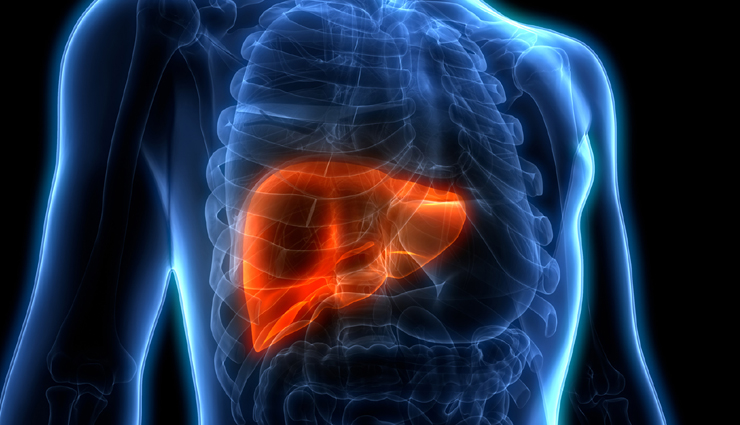
# Disturbances in Liver
Many people assume that if diabetics cannot eat sugar, so can damage the liver (liver). This assumption is wrong. The liver can be disrupted by the diabetes itself. Compared to people without diabetes, patients with diabetes are more susceptible to virus infection with hepatitis B or hepatitis C. Therefore, diabetics must stay away from sick people contracting hepatitis because it is easy and requires vaccination for the prevention of hepatitis. Chronic hepatitis and cirrhosis of the liver (liver cirrhosis) also easily occur because of infection or inflammation of the liver that is prolonged or repeated.
Liver disorders are often found in people with diabetes is the fatty liver or fatty liver, is usually (almost 50%) in patients with type 2 diabetes and obese. This disorder should not be allowed because it could be a sign of the accumulation of fat in other body tissues.
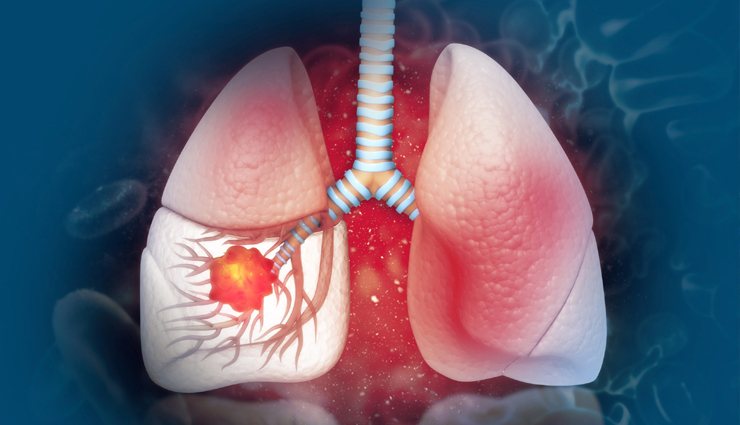
# Lung disease
Patients with diabetes are more susceptible to pulmonary tuberculosis infection than ordinary people, even well-nourished patients and socioeconomically enough. Diabetes aggravates lung infections, as well as lung disease will raise blood glucose.
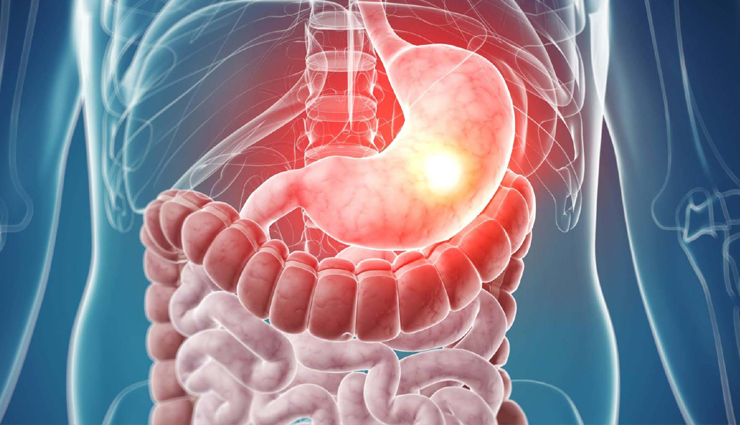
# Gastrointestinal disorders
Gastrointestinal disorders in diabetic patients due to poor blood glucose control, as well as autonomic nerve disorder affecting the digestive tract. This disorder begins from the oral cavity are prone to infections, impaired sense of taste, thereby reducing appetite, to the roots of the teeth vulnerable to infection, and tooth becomes easy to date and the growth becomes uneven. The taste of obstruction, nausea, and even vomiting and diarrhoea may also occur. This is the result of autonomic nerve disorders of the stomach and intestines. Complaints eat tract disorders can also arise due to the use of drugs taken.





